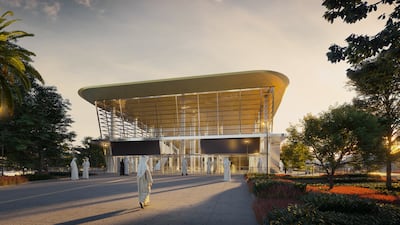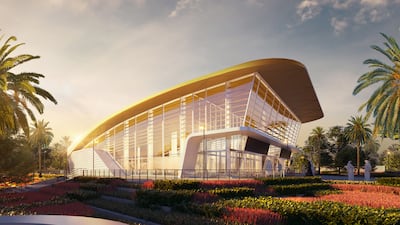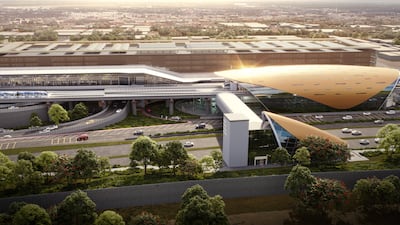Dubai on Sunday set out plans to more than double its number of Metro and tram stations by 2040 under a major public transport development drive.
The expansion project forms part of a wider economic strategy unveiled during a meeting of the Executive Council of Dubai.
The gathering was chaired by Sheikh Maktoum bin Mohammed, Deputy Prime Minister, Minister of Finance and First Deputy Ruler of Dubai.
Dubai currently has 55 Metro stations - 35 on the red line and 20 on the green line - as well as 11 tram stops, according to the website of the Dubai Roads and Transport Authority, which operates the emirate's rail network.
This number is to be increased to 96 stations spanning 140 kilometres by 2030, a Dubai Media Office statement said.
"It aims to cover 140 stations over 228 square kilometres by 2040," the statement added.
The expansion project is key to efforts to develop areas surrounding Dubai Metro stations to support the emirate's vision for a '20-minute city'.
The blueprint includes increasing the share of public transport to 45 per cent, reducing carbon emissions to 16 tonnes per capita, improving quality of public spaces to encourage walking, and increasing shaded areas.
The action plan will also be centred on boosting the populations of areas surrounding stations and increasing the number of residential, commercial, office, and service spaces around the Metro, attracting users, and increasing economic spaces.
Public transport boost
Work on the Dubai Metro Blue Line will start this year, the Roads and Transport Authority said in February.
Set to transform the north-east of the city, the Dh18 billion ($4.9 billion) project will feature 14 stations and add 30km to the Metro network, more than half of it underground.
Mattar Al Tayer, director general of the RTA, said: “This year will witness the start of implementation of the Dubai Metro Blue Line project.”
Mr Al Tayer said the Metro accounted for the largest proportion of users of mass transit, shared transport and taxis last year, at 37 per cent.
The RTA said the combined ridership of public transport and shared mobility, including Dubai Metro, tram, buses, marine transport and taxis reached about 702 million, up 13 per cent from 621.4 million in 2022.
When completed, the Blue Line will connect five principal urban regions of Dubai – Bur Dubai and Deira, Downtown and Business Bay, Dubai Silicon Oasis, Dubai Marina and JBR and Expo City Dubai.
The project is scheduled to be finished in 2029, coinciding with the 20th anniversary of the Dubai Metro.
Support for Dubai's mosques
The Executive Council approved plans to double the number of Emiratis working in mosques.
The 'Manbar' programme aims to provide citizens with the skills and qualifications needed to serve places of worship.
The initiative, overseen by the Department of Islamic Affairs and Charitable Activities, will help citizens to take part in delivering prayers, the call to prayer, and the Friday sermon.
"The programme provides citizens with all the training they need, in addition to opportunities to sponsor and train students for permanent appointments," Dubai Media Office said.
"All participants are comprehensively evaluated beforehand and until their graduation."
The council also announced the ‘Ghras Al Khair’ programme, which will partner with young influencers and content creators to champion traditional values of tolerance, harmony and cohesion to strengthen national identity.
The programme will also support educational projects in schools and universities, along with digital awareness campaigns.





